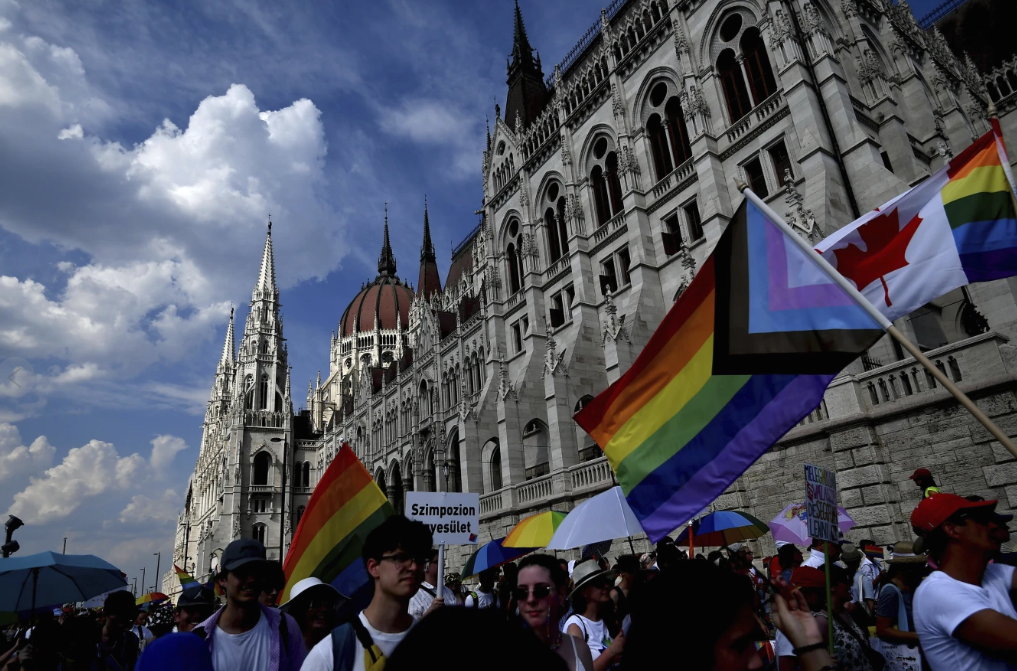Hungary’s ruling coalition has intensified its efforts against the LGBTQ+ community, introducing a bill in parliament on Monday aimed at banning the popular Budapest Pride event and enabling the use of facial recognition software to track participants.
With the ruling coalition holding a two-thirds majority in parliament, the bill is expected to pass without significant opposition.
The proposed law would make it illegal to organize or attend events that conflict with Hungary’s controversial “child protection” law, which bans the “depiction or promotion” of homosexuality to minors under the age of 18.
Anyone attending such an event could face fines of up to 200,000 Hungarian forints ($546), with the funds being directed to “child protection” efforts.
This bill represents the latest in a series of moves by Prime Minister Viktor Orbán’s government, which has been criticized by rights groups and European politicians for its increasing repression of LGBTQ+ rights.
The government presents itself as a strong advocate for traditional family values and a protector of Christian civilization, claiming to defend against what it calls “gender madness.” It argues that its policies are meant to shield children from “sexual propaganda.”
Hungary’s “child protection” law, passed in 2021, prohibits the “depiction or promotion” of homosexuality in content available to minors, including television, films, advertisements, and literature. It also bans the mention of LGBTQ+ issues in school education programs and forbids public displays of “gender deviating from sex at birth.”
In February, Prime Minister Viktor Orbán suggested that his government might move to ban the Budapest Pride event, which attracts thousands of participants and celebrates LGBTQ+ history while advocating for equal rights.
Budapest Pride is celebrating its 30th anniversary this year. Organizers have criticized Orbán’s attempt to ban the event, calling it an infringement on basic freedoms of speech and assembly.













